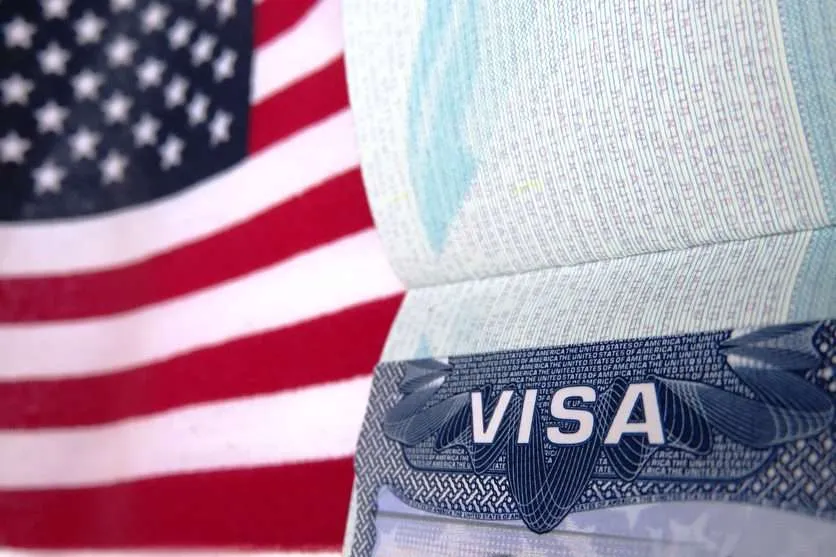The United States is a land of opportunity, attracting entrepreneurs and business professionals from all over the world. However, in order to conduct business in the US, foreign nationals must obtain the appropriate visa. In this article, we will explore the different types of US business visas and the requirements for obtaining them.
Why not get a FREE consultation with a leading immigration Law Firm? Click here: https://gip/contact/
Why Are Business Visas Necessary?
Business visas are necessary for foreign nationals who wish to enter the US for business purposes. These visas allow individuals to conduct business activities such as attending meetings, conferences, and negotiating contracts. Without a business visa, foreign nationals may be denied entry into the US or face legal consequences for violating immigration laws.
Types of US Business Visas
There are several types of US business visas, each with its own specific requirements and limitations. The most common types of business visas are:
- B-1 Visa: This visa is for individuals who wish to enter the US for business purposes, such as attending meetings, conferences, or negotiating contracts. It is valid for up to 6 months and does not allow for employment in the US.
- E-1 Visa: This visa is for individuals from countries that have a treaty of commerce and navigation with the US. It allows individuals to enter the US for the purpose of conducting international trade.
- E-2 Visa: This visa is for individuals from countries that have a treaty of commerce and navigation with the US. It allows individuals to enter the US for the purpose of investing in a US business.
- L-1 Visa: This visa is for individuals who work for a company that has a branch, parent, affiliate, or subsidiary in the US. It allows for individuals to transfer to the US for work purposes.
- H-1B Visa: This visa is for individuals who have specialized knowledge or skills and have been offered a job in the US. It is valid for up to 3 years and can be extended for an additional 3 years.
- O-1 Visa: This visa is for individuals who possess extraordinary ability in the sciences, arts, education, business, or athletics. It is valid for up to 3 years and can be extended for an additional 3 years.
- P-1 Visa: This visa is for athletes, artists, and entertainers who are internationally recognized. It is valid for the duration of the event or performance.
- TN Visa: This visa is for Canadian and Mexican citizens who work in certain professions, such as engineers, scientists, and teachers. It is valid for up to 3 years and can be extended for an additional 3 years.
Requirements for Obtaining a Business Visa
In order to obtain a business visa, foreign nationals must meet certain requirements. These requirements may vary depending on the type of visa being applied for, but generally include:
- A valid passport: The passport must be valid for at least 6 months beyond the intended period of stay in the US.
- Proof of intent to return to home country: Foreign nationals must provide evidence that they intend to return to their home country after their stay in the US. This can include proof of employment, family ties, or property ownership.
- Proof of financial support: Foreign nationals must show that they have enough funds to cover their expenses while in the US.
- Proof of business purpose: Foreign nationals must provide documentation that supports the purpose of their trip, such as a letter from an employer or an invitation to a business meeting.
- Nonimmigrant visa application: Foreign nationals must complete and submit a nonimmigrant visa application, along with any required fees.
- Interview: In most cases, foreign nationals must attend an interview at a US embassy or consulate in their home country.
- Why not get a FREE consultation with a leading immigration Law Firm? Click here: https://gip/contact/
Business Immigration and Immigration Laws
Business immigration refers to the process of obtaining a visa or permanent residency in the US for the purpose of conducting business. The US has strict immigration laws in place to regulate the entry of foreign nationals into the country. These laws are enforced by the US Citizenship and Immigration Services (USCIS) and the Department of Homeland Security (DHS).
Some of the key immigration laws that affect business immigration include:
- Immigration and Nationality Act (INA): This law outlines the requirements for obtaining a visa or permanent residency in the US.
- Immigration Reform and Control Act (IRCA): This law requires employers to verify the employment eligibility of their employees.
- Immigration Act of 1990: This law established the Diversity Visa Program, which provides a limited number of visas to individuals from countries with low rates of immigration to the US.
- American Competitiveness and Workforce Improvement Act (ACWIA): This law increased the number of H-1B visas available and established a training fee for employers who hire H-1B workers.
- Immigration Act of 1996: This law increased penalties for immigration violations and expanded the grounds for deportation.
How to Choose the Right Business Visa
Choosing the right business visa depends on the purpose of your trip and your individual circumstances. Some factors to consider when choosing a business visa include:
- Length of stay: If you only need to enter the US for a short period of time, a B-1 visa may be the best option. However, if you plan to stay in the US for an extended period of time, a different visa may be more suitable.
- Type of business activity: Different visas have different restrictions on the types of business activities that can be conducted. For example, a B-1 visa does not allow for employment in the US, while an H-1B visa is specifically for individuals who have been offered a job in the US.
- Country of origin: Some visas are only available to individuals from certain countries. For example, the E-1 and E-2 visas are only available to individuals from countries that have a treaty of commerce and navigation with the US.
- Personal circumstances: Your personal circumstances, such as your education, work experience, and skills, may also play a role in determining which visa is right for you.
Conclusion
Obtaining the right business visa is crucial for foreign nationals who wish to conduct business in the US. By understanding the different types of business visas and the requirements for obtaining them, individuals can choose the visa that best suits their needs and ensure a smooth and successful business trip. It is important to consult with an immigration lawyer to determine the best course of action for your specific situation. With the right visa, you can take advantage of the opportunities that the US has to offer and contribute to the country’s thriving business landscape.
Why not get a FREE consultation with a leading immigration Law Firm? Click here: https://gip/contact/
You might also be interested to read more on these legal websites:
This Blog was written by:
Global Immigration Partners PLLC, is a specialized immigration law firm.
1717 Pennsylvania Avenue NW, Washington, DC 20006, United States

